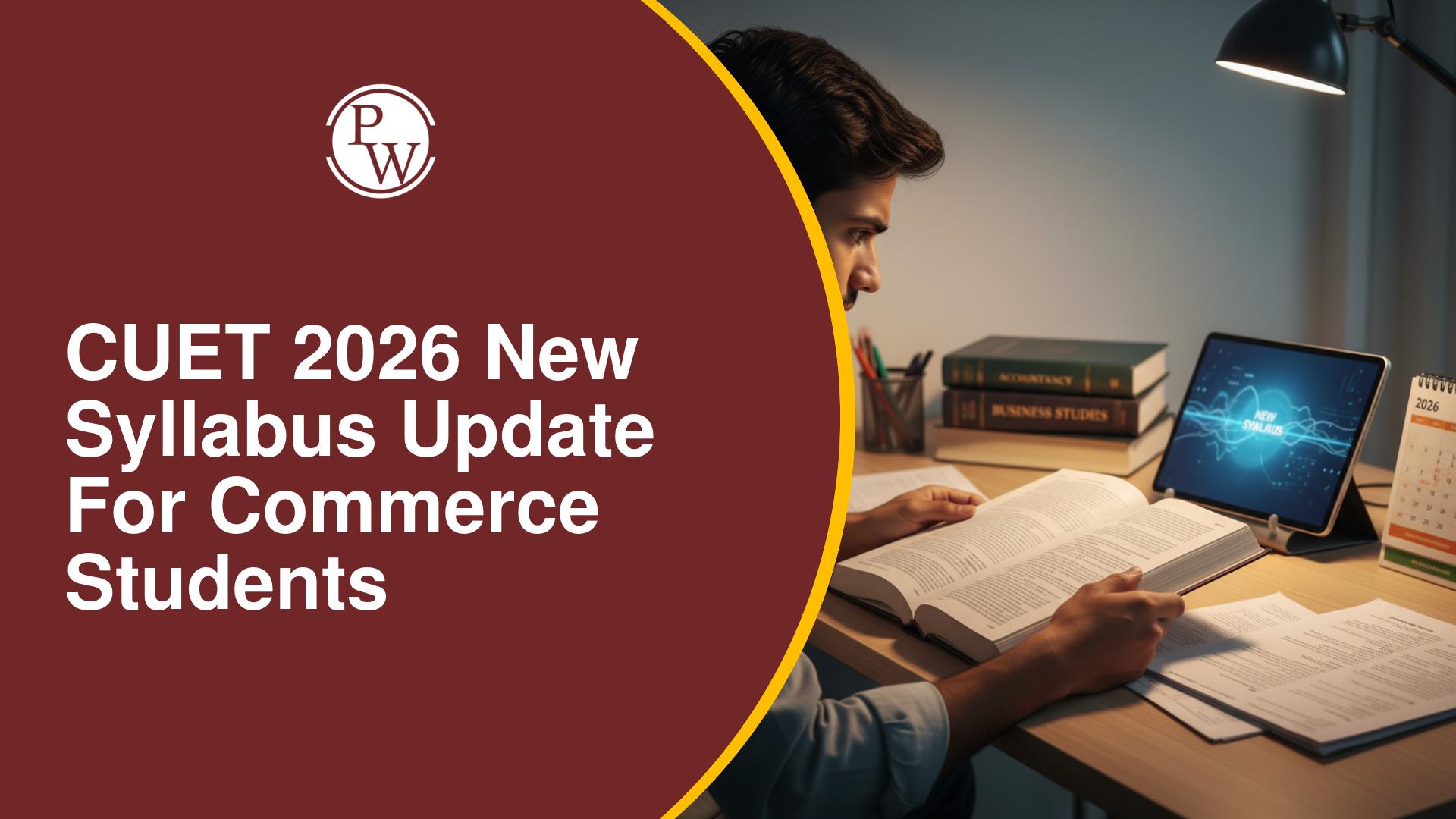
Preparing for your Accountancy exam can be challenging, but with effective strategies, it becomes more manageable. Accountancy requires a deep understanding of concepts rather than just rote memorization.
To excel in your half-yearly exams, it's essential to adopt a structured revision plan that covers all key topics, sharpens your problem-solving skills, and employs various study techniques. This approach ensures that you're well-prepared to tackle exam questions with clarity and confidence. Half-yearly exams are important since they serve as critical benchmarks in your academic career, providing insights into your strengths and areas needing improvement. They are crucial for assessing your grasp of subjects and for identifying growth opportunities. This article offers practical tips on how to study for accounting exam and provides an effective accounting exam review strategy, helping you efficiently prepare and achieve high scores in your 2024-25 exams.Top 10 Tips to Revise for Half-Yearly Accountancy Exam
Here are the top 10 tips, plus one bonus tip, to help you revise for your half-yearly Accountancy exam. These tips include both practical and theoretical approaches to ensure you're fully prepared for the exam.1. Plan Your Study Schedule
Start by making a detailed study plan, considering the number of days left before the exam. Break down the Class 12th Accountancy Half Yearly Syllabus and assign specific time slots to each topic. Prioritize chapters with higher weightage, like "Admission of a Partner" and "Accounting for Partnership Firms." For example, if you have 15 days left, allocate more days to difficult chapters like " Financial Statements " and fewer days to easier ones.2. Understand the Exam Pattern
Familiarize yourself with the exam format, including subjective and practical questions. Understand how marks are distributed for each section. Practice with previous years' question papers to get used to the type of questions and time allocation. This will help you strategize on how to answer different sections in the exam.
3. Focus on Core Concepts
Instead of just memorizing facts, focus on understanding the key concepts. For instance, fully grasp the concept of Goodwill valuation or the change in profit-sharing ratios. These topics often require deeper understanding and application in real-life scenarios, making them crucial for both theoretical and practical questions.4. Practice Practical Problems Daily
Since Accountancy involves numerous calculations, practice solving practical problems regularly. Topics like “Dissolution of Partnership” or “Accounting Ratios” require you to work through calculations multiple times to master them. Set aside specific times each day to solve problems, focusing on accuracy and speed.5. Revise Important Formulas
Create a list of important formulas and revise them daily. For example, formulas related to financial ratios , profit and loss calculations, and goodwill need to be at your fingertips during the exam. Stick these formulas on your study desk or somewhere visible to reinforce memory.6. Pay Extra Attention to Weak Areas
Identify the areas where you feel less confident. Spend additional time revising these topics, practicing extra problems, or seeking clarification from teachers or classmates. For example, if you struggle with "Retirement of a Partner," devote more time to solving examples and understanding the underlying concepts.7. Use Study Groups for Discussions
Joining a study group can be very beneficial. You can discuss complex topics, ask questions, and learn from your peers. If you're having trouble with a chapter like " Financial Statements and Analysis ," explaining it to others in your group will help solidify your understanding.8. Prepare Short Notes for Quick Revision
As you study, create short notes for each topic. These notes should include key concepts, formulas, and definitions. For instance, write a summary of the steps involved in the dissolution of a partnership. These notes will help with short revision just before the exam.Also Check: Class 11 Accountancy Notes and Study Material, Download PDF
9. Take Timed Mock Tests
Take full-length mock tests under exam conditions to assess your preparation level. This will allow you to better manage your time during the actual exam. For instance, practice solving an entire paper in three hours to get comfortable with pacing yourself, especially in sections that require lengthy calculations.Also Check: Class 12 Accountancy Sample Papers 2024-2025
10. Balance Practical and Theoretical Topics
Accountancy exams usually have a mix of practical and theoretical questions. Allocate time to both. While practicing problems like Balance Sheet preparation is essential, don’t neglect theory chapters such as the “Nature of Goodwill” or "Principles of Partnership Accounting." Theory questions often provide easy marks if you're well-prepared.Bonus Tip: Stay Confident and Positive
As exam day approaches, stay calm and believe in your abilities. Stress can hinder your performance, so take short breaks, meditate, or practice relaxation techniques. A positive mindset will boost your confidence, helping you perform better during the exam. By following these detailed tips and maintaining a balance between theory and practice, you'll be well-prepared to ace your half-yearly exam. Knowing how to study for your accounting exam and incorporating a thorough accounting exam review will boost your chances of success.Also Check: Tips To Attempt Class 12 Accountancy Exam
How to Prepare for Practical Questions in the Accountancy Exam?
Preparing for practical questions in the Accountancy exam requires targeted strategies to handle calculations and apply concepts accurately. Here are some unique tips to ensure you're fully prepared for these questions:- Master Calculation Techniques: Practical questions often involve complex calculations. Ensure you’re comfortable with manual calculations and know how to cross-check your results. For example, when solving a question on “Admission of a Partner,” double-check the revaluation of assets and liabilities.
- Understand the Accounting Format: Practical questions usually follow a specific format, such as balance sheets or cash flow statements. Practice writing answers in the correct format, as presentation matters in accountancy exams.
- Use Real-Life Examples: Apply what you’ve learned to real-life business scenarios. For example, think of a business partnership and practice how you would calculate the distribution of profits among partners, especially if there’s a change in the profit-sharing ratio.
- Time Management During Problem Solving: Set a time limit while solving practical problems. For instance, if solving a trial balance takes you too long, practice more to complete it within the exam’s time constraints.
- Work on Accuracy: Small mistakes in practical questions can lead to wrong answers. Focus on precision in your calculations, especially when preparing statements like the “Dissolution of Partnership.”
Also Read: Top 20 Class 11th Accountancy Questions and Answers
How to Prepare for Theory Questions in the Accountancy Exam?
Preparing for theory questions in the Accountancy exam involves understanding concepts, definitions, and key principles. Here are some useful tips to help you prepare for theory questions:- Study Key Definitions and Concepts: Focus on understanding essential definitions and principles, such as “Nature of Goodwill” or “Accounting Principles.” For example, know the difference between depreciation and amortization and be able to explain both clearly.
- Summarize Textbook Chapters: Create concise summaries of each chapter, highlighting the main points. For instance, summarize the chapter on “Accounting for Partnership Firms,” focusing on key topics like profit-sharing ratios and partner contributions.
- Understand Accounting Standards: Pay close attention to accounting standards and guidelines, as they form the foundation of theoretical questions. Make sure to revise each standard with its real-world application.
- Revise with Diagrams and Charts: Use flowcharts, diagrams, and tables to visually represent theoretical concepts like accounting cycles or types of accounts. This helps in retaining information and explaining it clearly in the exam.
- Explain Concepts in Your Own Words: Try to teach the concepts to someone else or explain them out loud to yourself. This helps guarantee that you fully understand the material. For example, explain how the “Going Concern Concept” affects financial statements.
- Practice Past Exam Questions: Review and answer past theory questions to get a sense of how questions are framed and what is expected in your responses. For example, if a past question asks about the impact of changing accounting policies, practice writing a clear, structured answer.
Also Read: Accountancy MCQs for Class 11 and 12
However, revising for your half-yearly Accountancy exam involves a strategic mix of understanding key concepts and practicing practical problems. Effective time management and a structured revision plan will help you tackle the exam with confidence and achieve high scores. Physics Wallah (PW) offers top-notch coaching for Commerce students, providing expert guidance and the best materials to enhance your exam preparation. With our support, you'll gain the skills and knowledge needed to excel in your Accountancy exams. Sign up for the PW Commerce Online Course today and get expert coaching to excel in your Accountancy and Commerce exams!Half-Yearly Accountancy Exams FAQs
How to revise Accountancy before the exam?
To revise for your Accountancy exam, focus on key concepts, practice past papers, and review important formulas. Create short notes for quick revision and spend extra time on challenging topics. Practice consistently to increase accuracy and speed.
How can I get full marks in Accountancy?
To score full marks, understand the concepts deeply, practice numerical questions regularly and solve previous years' papers. Focus on accuracy and time management during the exam, and revise all key topics thoroughly.
How to study for the accounts midterm exam?
For your accounting midterm, start by breaking the syllabus into manageable parts. Focus on both theory and practical questions, practice problem-solving, and review important concepts. Make sure to revise formulas and key definitions regularly.
Is the Accountancy exam hard?
The Accountancy exam can seem challenging, especially with tricky MCQs and numerical questions. However, with consistent practice and good time management, the paper is manageable. Many students finish on time and feel satisfied with their performance.
Can I score 100 in Accountancy?
Yes, scoring 100 in Accountancy is achievable. Among commerce subjects, it's considered one of the easiest with regular practice. Focus on understanding concepts, practicing regularly, and managing your time well during the exam.
🔥 Trending Blogs
Talk to a counsellorHave doubts? Our support team will be happy to assist you!

Free Learning Resources
PW Books
Notes (Class 10-12)
PW Study Materials
Notes (Class 6-9)
Ncert Solutions
Govt Exams
Class 6th to 12th Online Courses
Govt Job Exams Courses
UPSC Coaching
Defence Exam Coaching
Gate Exam Coaching
Other Exams
Know about Physics Wallah
Physics Wallah is an Indian edtech platform that provides accessible & comprehensive learning experiences to students from Class 6th to postgraduate level. We also provide extensive NCERT solutions, sample paper, NEET, JEE Mains, BITSAT previous year papers & more such resources to students. Physics Wallah also caters to over 3.5 million registered students and over 78 lakh+ Youtube subscribers with 4.8 rating on its app.
We Stand Out because
We provide students with intensive courses with India’s qualified & experienced faculties & mentors. PW strives to make the learning experience comprehensive and accessible for students of all sections of society. We believe in empowering every single student who couldn't dream of a good career in engineering and medical field earlier.
Our Key Focus Areas
Physics Wallah's main focus is to make the learning experience as economical as possible for all students. With our affordable courses like Lakshya, Udaan and Arjuna and many others, we have been able to provide a platform for lakhs of aspirants. From providing Chemistry, Maths, Physics formula to giving e-books of eminent authors like RD Sharma, RS Aggarwal and Lakhmir Singh, PW focuses on every single student's need for preparation.
What Makes Us Different
Physics Wallah strives to develop a comprehensive pedagogical structure for students, where they get a state-of-the-art learning experience with study material and resources. Apart from catering students preparing for JEE Mains and NEET, PW also provides study material for each state board like Uttar Pradesh, Bihar, and others
Copyright © 2026 Physicswallah Limited All rights reserved.









